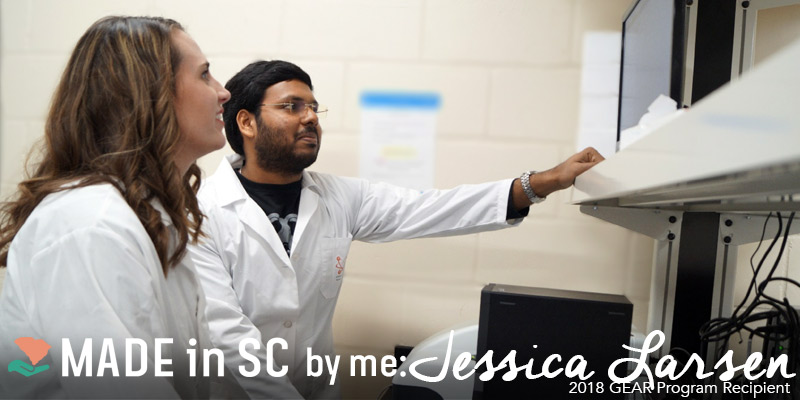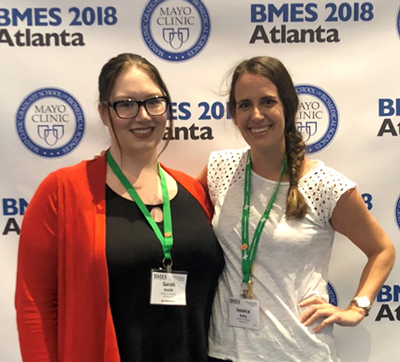GEAR Program Focus On Dr. Larsen

Current techniques of neurodegenerative disease detection involve lysing cell populations or analyzing post-mortem tissue; these techniques create a significant bottleneck in obtaining information about cellular characteristics of neurodegeneration because they do not adequately preserve information on disease progression. Although, all neurodegenerative disorders involve lysosomal dysfunction and storage products, the pathway by which accumulation leads to neurodegeneration can vary patient to patient. Therefore, we are filling a critical need to perform mechanistic studies into the temporospatial behavior of neurodegenerative pathways in live cells, with the goal of correlating known cellular changes in neurodegeneration to identifiable and measurable increases in lysosomal hydrolase activity in real time to allow for personalized disease analysis. Cellular information gained is used in the development of nanoparticles to be used as simultaneous diagnostic and therapeutic tools in brains of patients. These nanoparticles respond to enzyme upregulation, releasing both a diagnostic signal and a therapeutic enzyme for treatment.
Professor Jessica Larsen began her academic career at the University of Virginia, obtaining her BS in Chemical Engineering in 2012. She obtained her PhD in Chemical Engineering from Auburn University where she was able to perform research under Drs. Mark Byrne in Chemical Engineering and Doug Martin in the College of Veterinary Medicine. Her research is centered on biomimetic and polymeric materials for drug delivery applications in neurodegenerative disease and other brain disorders. Larsen is the research mentor for a postdoc, two PhD students, and a masters student. She also participates heavily in undergrad research, through Clemson’s Creative Inquiry Program, where she mentors 13 undergrad students per semester and is the faculty mentor for two Calhoun Honors College students on materials-based research projects. In these efforts, Larsen utilizes a variety of nanoparticle characterization techniques, as well as in vitro and in vivo therapeutic analysis, working at the interface of biology and engineering. Through careful development of biologically-relevant nanocarriers, Dr. Larsen hopes to bring next-generation nanomedicine with both disease-specificity and patient-personalization to the clinic. She is engaged in the local community as a Track and Field and Cross Country coach at Seneca High School.
June 5, 2019
